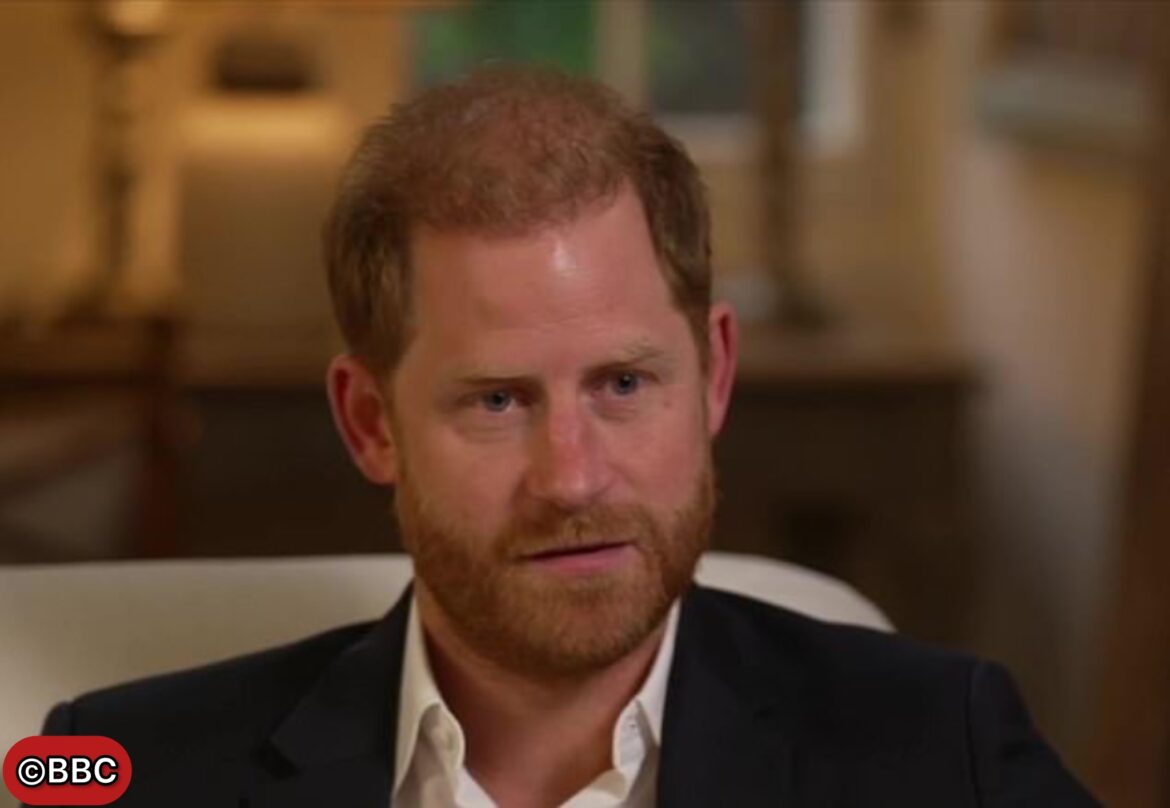BBC Faces Scrutiny After Unchallenged Royal Interview
The BBC has officially admitted to a lapse in editorial standards following its decision not to challenge explosive remarks made by Prince Harry during a Radio 4 interview, in which he described the legal process surrounding his UK security case as a “good old-fashioned establishment stitch-up.”
Prince Harry’s Controversial Claims Spark Backlash
The Duke of Sussex, speaking candidly on the show, criticized the British establishment following his loss in a high-profile legal battle with the Home Office. However, the BBC’s failure to include responses from the Home Office and Buckingham Palace has drawn sharp criticism—and triggered a rare public correction from the broadcaster.
The Interview That Sparked Controversy
Prince Harry’s “Stitch-Up” Comment Airs on BBC Radio 4
The controversial segment aired on BBC Radio 4’s Today programme, with guest commentary from former royal protection officer Richard Aitch, who backed Harry’s accusations. The Duke’s blunt description of the legal outcome, which included words like “stitch-up”, raised eyebrows both within the media and political circles.
Lack of Counterbalance from Home Office and Palace Criticized
Critics quickly pointed out that the programme failed to present alternative perspectives, notably those of the Home Office and Buckingham Palace, both central to the story. This breach of the BBC’s commitment to impartial journalism became a flashpoint for renewed concerns over royal reporting ethics.
BBC Issues Public Correction
“We Failed to Properly Challenge These Allegations”
The broadcaster has since published a correction, acknowledging the oversight. The statement read:
Claims were repeated that the process had been ‘an establishment stitch-up’ and we failed to properly challenge this and other allegations… We should have reflected the Home Office’s statement and the view of Buckingham Palace. This was a lapse in our usual high editorial standards.”
Home Office and Buckingham Palace Views Omitted
The omission of official responses is particularly significant in a case that has legal and constitutional implications, as it involves the complex intersection of national security policy and royal status.
Background on Harry’s Legal Battle
Court Upholds Reduction in Police Security for Harry
The row stems from Prince Harry’s challenge to the UK government’s decision to downgrade his police protection after stepping down from royal duties in 2020. Harry had argued that this put his family in danger during visits to the UK.
Duke Claims He and His Family Are Unsafe in the UK
Despite the court ruling that the Home Office acted lawfully, Prince Harry voiced his frustration publicly, insisting the process had been unfair and fueled by royal politics. He has previously indicated that this issue affects his willingness to visit the UK with his wife Meghan and their children.
Reaction From Royal Family and Government
Home Office Defends Security Measures
The Home Office reiterated that the UK’s security policy is risk-based and subject to rigorous review, and that the decision regarding Prince Harry’s protection was made by an independent expert panel, not political appointees.
Palace Emphasizes Judicial Integrity in Ruling
Buckingham Palace, while maintaining its tradition of limited public comment, reportedly emphasized respect for the legal process. Royal sources stressed that the ruling was “objective, independent, and not influenced by personal relationships.”
Media Accountability and Royal Coverage
BBC’s History of Royal Reporting Missteps
This latest misstep has revived memories of the 1995 Panorama interview with Princess Diana—an iconic broadcast later tarnished by revelations that journalist Martin Bashir used deceptive methods to secure the exclusive. The fallout led to years of soul-searching at the BBC and promises of reform.
Comparisons to Diana’s Panorama Interview Resurface
While not as egregious, the Harry interview incident is being seen by some media critics as yet another sign that the BBC struggles to handle royal narratives with consistent objectivity, especially when those narratives are emotionally charged or politically sensitive.
Implications for BBC Journalism
Renewed Focus on Editorial Balance and Transparency
The BBC has promised to reassess its internal protocols to ensure that interviews, particularly those involving controversial public figures, are subject to adequate editorial scrutiny and balance.
Pledge to Uphold Journalistic Integrity Moving Forward
In a media environment rife with misinformation and partisanship, the BBC’s commitment to high standards of impartiality is more important than ever. This incident may serve as a turning point for how the broadcaster handles royal reporting going forward.
Conclusion
A Warning Shot for the Media on Accountability in Royal Reporting
The BBC’s admission of fault over the unchallenged remarks made by Prince Harry has underscored the pressing need for media outlets to maintain impartiality, particularly when covering sensitive issues involving the monarchy and state institutions. As royal family narratives grow more complex, the responsibility on journalists to be fair, accurate, and thorough has never been greater.
FAQs
Q1: What did Prince Harry say in the BBC interview?
A1: He referred to his legal defeat regarding UK security as an “establishment stitch-up,” expressing distrust in the process.
Q2: Why is the BBC being criticized?
A2: The BBC failed to challenge Harry’s claims and did not include responses from the Home Office or Buckingham Palace.
Q3: What was the result of Harry’s security court case?
A3: The UK court upheld the Home Office’s decision to reduce his police protection, deeming it lawful.
Q4: Has the BBC apologized?
A4: Yes, the BBC issued a public correction acknowledging the lapse in editorial standards.
Q5: What is nitrous oxide, and why is it dangerous?
A5: While not relevant to this case, nitrous oxide (laughing gas) can cause oxygen deprivation, especially when overused or combined with health issues. [Note: Adjust/remove based on context.]



